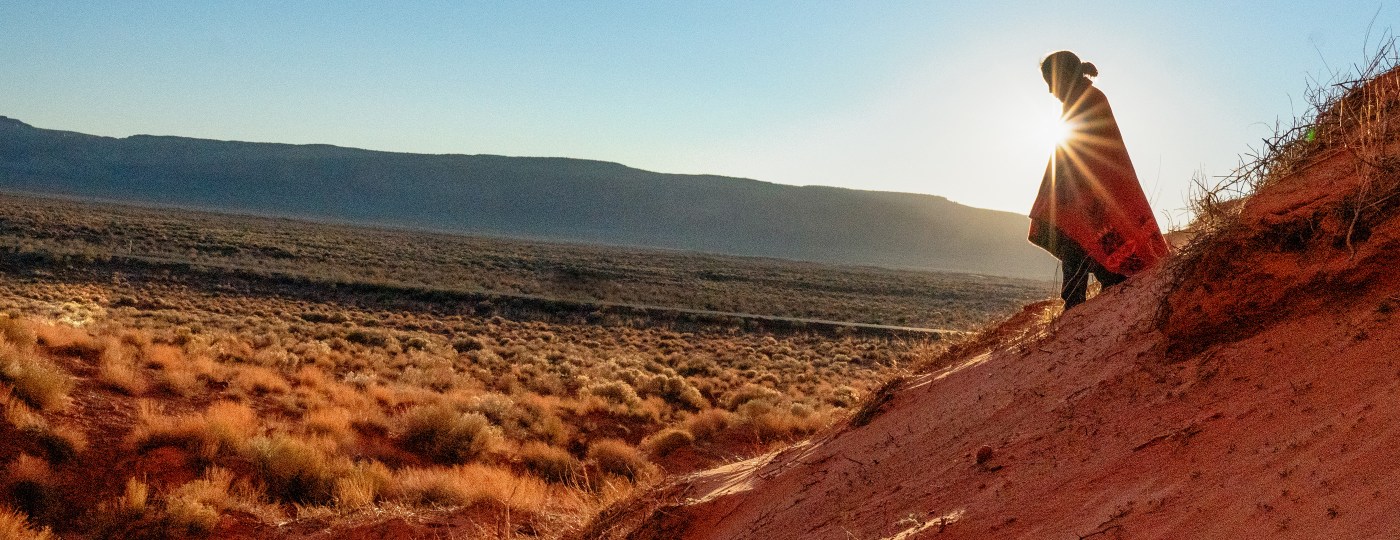Overview
The Twelfth District is home to one of the largest Native and Indigenous populations in the Federal Reserve System. Of the country’s 574 federally recognized tribes, 80% (431) are located in the District. They are joined by Native Alaskan and Native Hawaiian communities and the Indigenous populations of Guam, American Samoa, and the Northern Mariana Islands.
Expanding our engagement with this diverse and dynamic population is central to the SF Fed’s goal to be a community-engaged Bank. Our engagement with Alaska Native, Native American, Native Hawaiian, and Indigenous communities, includes partnering with community leaders, inter-tribal organizations, and certain federal agencies to better understand how these communities are experiencing the economy and to foster greater economic opportunity.
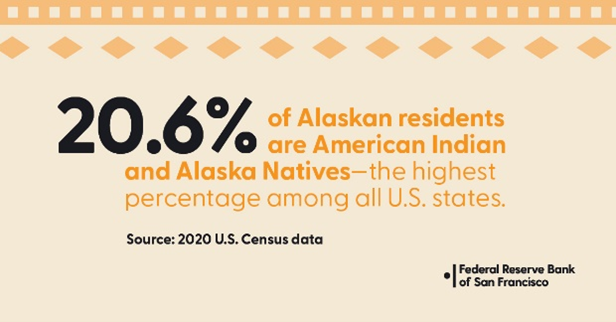
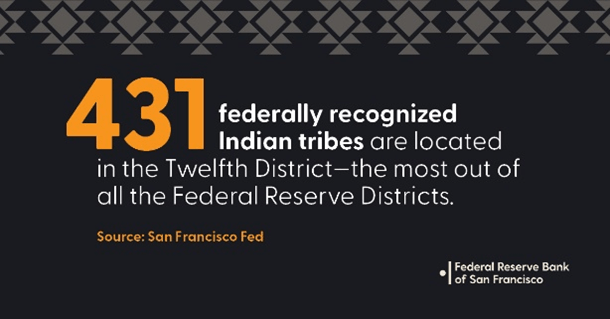
Contacts
DISTRICT-LEVEL CONTACT
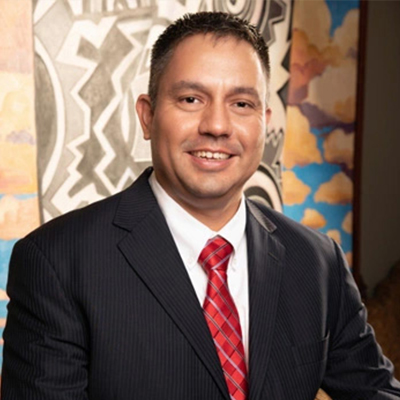
Chad Marchand
Senior Outreach Manager
State-Level Contacts
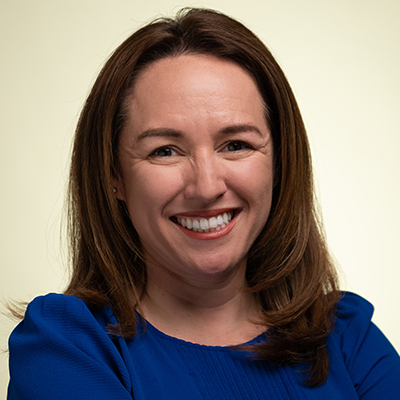
Jessica Monge Coria
Southern California
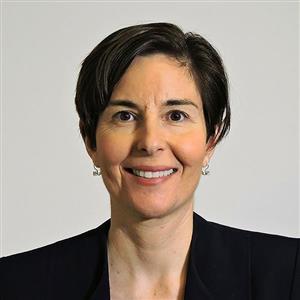
Leilani Pinho Barnett
Central Valley CA & Idaho

Tracy Choi
Bay Area & Utah
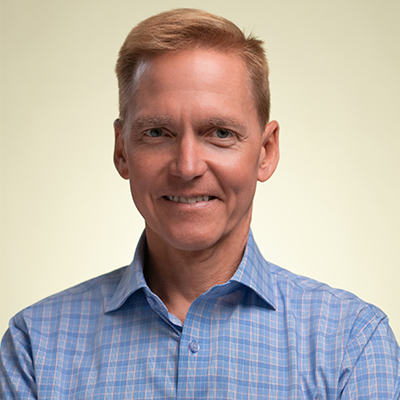
Jon Ford
Arizona, Hawaiʻi, & Guam
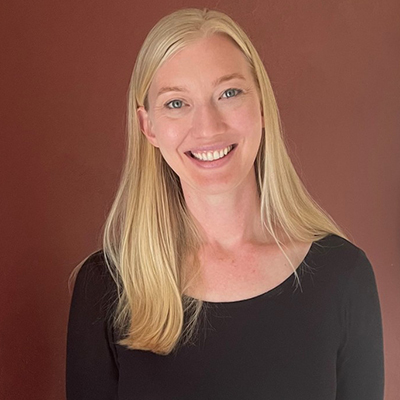
Jenny Glass
Alaska, Oregon, & Washington
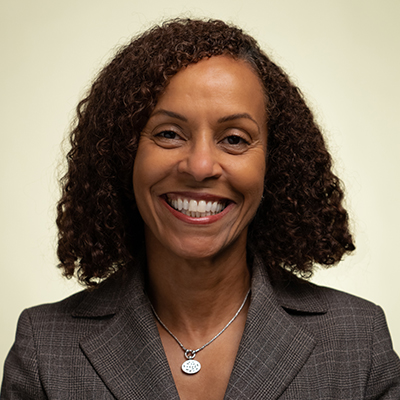
Joselyn Cousins
Nevada
Local Leadership
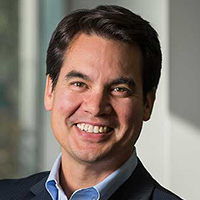
Gabriel (Gabe) Kompkoff
Seattle Branch Board of Directors
President and
Chief Financial Officer
Grant Aviation
Anchorage, Alaska
Chugach
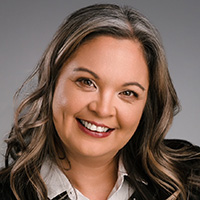
Colleen Dushkin
Community Advisory Council
Vice President of Culture and Strategy
Cook Inlet Housing Authority
Anchorage, Alaska
Unangax (Aleut)
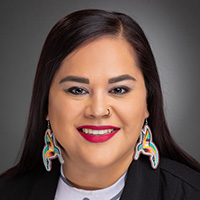
Erin Abrahamson
Community Advisory Council
Chief of Staff
National Center for American Indian Enterprise Development
Mesa, Arizona
Confederated Tribes of the Colville Indian Reservation
Native CDFIs: Supporting Local Economies
Native community development financial institutions (CDFIs) play a key role in economic development and efforts to advance opportunities in tribal and Indigenous communities. By increasing access to credit, capital, and financial services, these institutions advance economic resiliency and growth. The CDFIs also support other critical community development goals from small business creation to affordable housing development.
The Federal Reserve System has developed a number of resources that support the Native CDFI network.
- The Native American Labor Market Dashboard, which provides labor market metrics for the American Indian and Alaska Native population;
- The Native American Financial Institutions Map, which shows locations and asset sizes of banks and credit unions owned by, and CDFIs primarily serving, American Indian, Alaska Native, and Native Hawaiian individuals and communities; and,
- The Native Economic and Financial Education Empowerment program, a Federal Reserve System effort to provide economic and personal finance education for Tribal nations and Native communities and organizations.

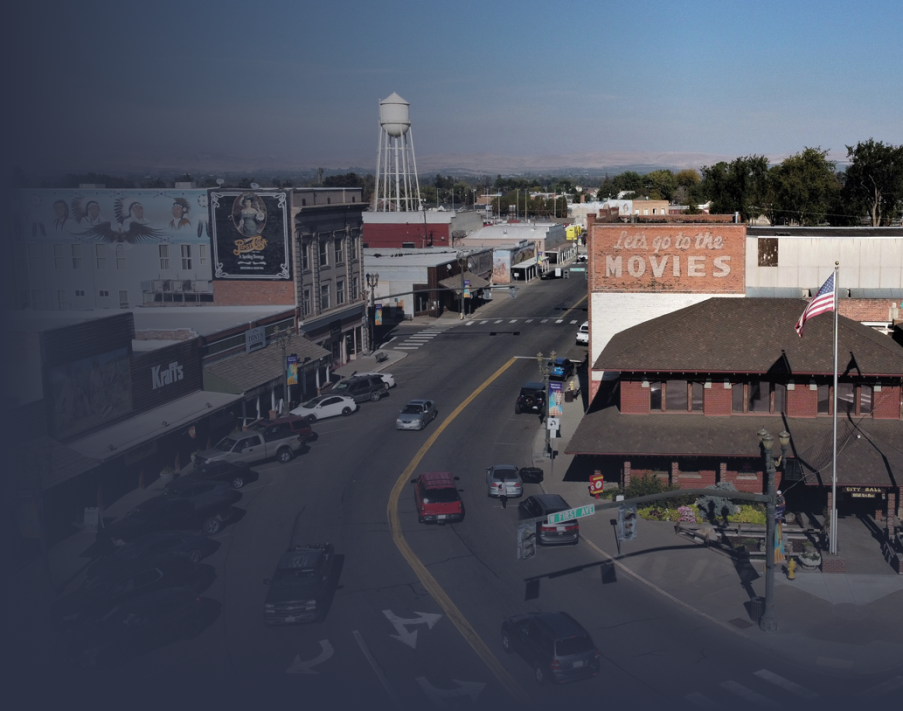
President Daly in the District
SF Fed President and CEO Mary Daly recently had the opportunity to visit the Yocha Dehe Wintun Nation, one of our 431 federally recognized Native tribes in the Twelfth District, whose homeland is centered in Yolo County’s Capay Valley in Northern California. President Daly toured the Yocha Dehe Wintun Academy campus where she had the opportunity to talk with school leadership and students about the school’s work to prepare students for higher education through curricula steeped in the Tribe’s culture, traditions, and history. President Daly also learned more about Yocha Dehe’s diverse farming operations, including the Séka Hills Olive Mill & Tasting Room, and the innovative practices that are helping the Tribe create pathways to sustainable economic development. The visit was organized in partnership with the Yocha Dehe Wintun Nation Tribal Council.
Recent Publications
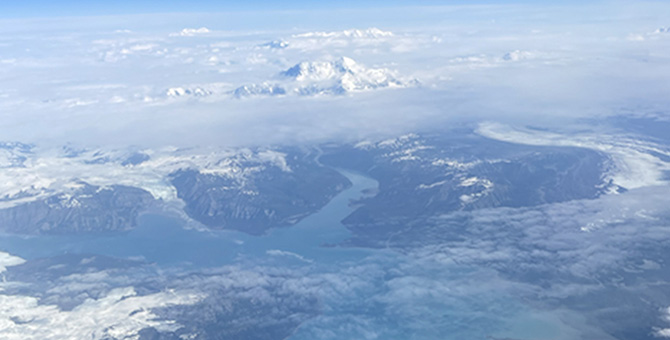
Around the District: Community Resiliency in Remote Alaska
As a community-engaged bank, the SF Fed seeks out real-time information on economic conditions by engaging with and learning from businesses, community organizations, and local leaders. These conversations are one of the many inputs into the decisions and policymaking at the Federal Reserve as we pursue our mission. Here’s a snapshot of a recent outreach visit to Alaska from Christina Prkic, Regional Executive of the SF Fed’s Seattle branch.

Learning from Alaska Native, Native American, Native Hawaiian, and Indigenous Communities
The voices from Alaska Native, Native American, Native Hawaiian, and Indigenous communities are needed for the Federal Reserve’s work to help create an economy that works for all. As the first Senior Outreach Manager for Tribal and Indigenous Communities, Chad Marchand shares his plan to help advance equitable economic opportunity for Indigenous people and communities.
